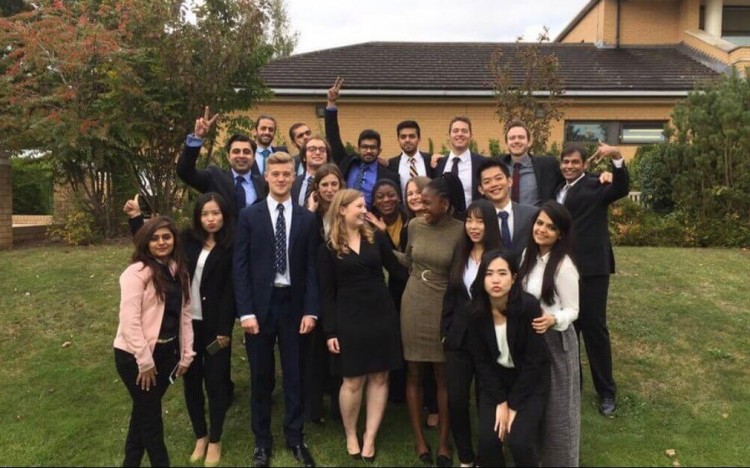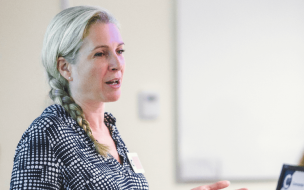Take Unilever, the consumer goods giant that pulled in over $56 billion in revenues last year. When it comes to launching new brands, the company choose to adopt a startup mindset to get the job done, emulating the agility of companies a fraction of its size.
For Rebecca Harper, a performance digital data lead at the company, her Master’s in Management and Entrepreneurship at Cranfield School of Management helped prepare her for this environment.
“The master’s provides you with the knowledge to thrive in a fast-paced environment”
Rebecca joined the course at Cranfield hoping to launch her own startup, but she soon realized that the idea she had in mind would not be viable as a business.
However, the program’s introduction to thinking like an entrepreneur has proven invaluable in a corporate environment.
“Here at Unilever, we deploy a lean and agile startup mentality, and that’s to make sure we execute an advantage over our competitors,” Rebecca says.
“This mindset was truly learned on the MSc in Management and Entrepreneurship [at Cranfield], which is why I believe it’s such a unique course.”
Key to this startup mindset is the creation of a never-ending loop of feedback on a new offering: producing the minimum viable product and refining its core features so that the most effective outcome is reached by the most effective process.
This is necessary for startups to get themselves off the ground, but it is also of use at large companies like Unilever when it comes to managing new products on tight budgets.
According to Rebecca, the program at Cranfield School of Management equips students to apply this mentality from day one.
“The master’s will always provide you with the knowledge to thrive in a fast-paced environment with integrity and confidence, whether that’s in a corporate or a startup,” she confirms.
“If you’re ambitious and want to develop creative thinking, the quality of teaching and the diversity of the culture gives you the foundation to succeed.”
“When I started, I had the skillset of a manager—now, I have the skillset of a leader”
An entrepreneurial mindset alone cannot reproduce all of the conditions of a startup. It would be easy for an early-career professional joining a large corporation to feel anonymous, maybe even reluctant to take ownership of their team and their projects.
However, Rebecca says that the personal journey she underwent at Cranfield means that this has not been a problem for her at Unilever.
“I could say that when I started my course, I had the skillset of a manager—but when I left, I had the skillset of a leader,” she says.
“From a personal perspective, I learned about what I was capable of, how resilient I was and how I could use my inner drive to be proactive rather than reactive.”
Ultimately, it is the ability of the program at Cranfield School of Management to foster this proactive attitude in its students that Rebecca believes has set her, and her peers, up for success.
Whether they are turning their talents to small startups or, like Rebecca, to FTSE 100-listed companies, this proactivity is a huge asset.
“What I remember most is the camaraderie and support [within the cohort], and I made friends for life,” she explains. “Now that we’ve graduated and gone our separate ways, I get to watch them grow and excel in what they’ve chosen to do—it’s very gratifying.”








